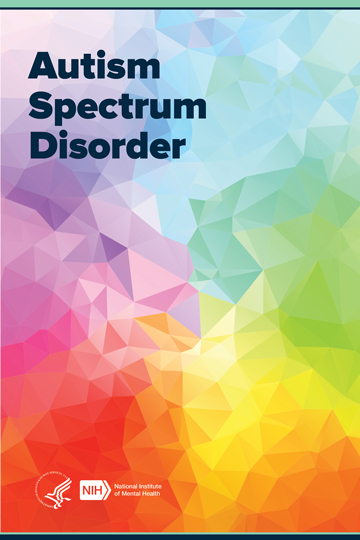10 Must-Know points about how an Autism Therapist's intervention impacts social growth in autism
10 Must-Know points about how an Autism Therapist's intervention impacts social growth in autism
Blog Article
Secret Symptoms And Signs to Identify in Individuals With Behavior Autism
When you run into somebody with behavior autism, recognizing vital signs and symptoms is necessary. You may see challenges in social interactions and communication, as well as a solid demand for regimens. In addition, sensory level of sensitivities can cause frustrating experiences. Comprehending these characteristics can improve your support and interventions, but there's even more to reveal concerning exactly how these habits manifest in everyday scenarios. Allow's explore what these signs really resemble.
Challenges in Social Interactions
When you interact with a person on the autism spectrum, you might observe they deal with social cues and interaction. These difficulties can make social interactions really feel overwhelming for them. You might see them preventing eye contact or standing also close or too far during discussions, which can produce misconceptions. They may not notice body movement or faces, making it harder for them to determine how others are feeling.
In addition, you may discover that they prefer routines and acquainted settings, which can limit their readiness to take part in brand-new social situations. When they do involve, they could speak about their rate of interests in wonderful detail without seeing if you're interested. This can cause discriminatory conversations that leave you feeling separated. Understanding these difficulties can assist you come close to communications with empathy and persistence, cultivating a more comfortable atmosphere for both of you.
Trouble With Verbal and Non-Verbal Communication

Non-verbal communication can be even extra difficult. You could see a lack of eye contact or minimal use motions, which can make communications feel unpleasant. Faces may not constantly straighten with the conversation, resulting in complication about their feelings. Recognizing these indicators is vital, as it assists you better assistance and involve with individuals on the autism range. By understanding their interaction challenges, you can promote more significant links and offer an extra supportive atmosphere.
Repeated Actions and Regimens
Interaction challenges commonly come with other signs of autism, such as repeated actions and a solid preference for routines. You may observe that people with autism often take part in certain, repetitive activities, like hand-flapping, rocking, or repeating phrases. These actions can give comfort and a sense of control in a commonly overwhelming world.
When they follow an organized routine,Regimens are equally essential; several individuals flourish. You may find that changes to these routines can result in significant distress. If they have a day-to-day routine of consuming morning meal at a specific time or following a certain path to college, any disruption can trigger stress and anxiety.
Acknowledging these patterns aids you comprehend their actions and provide support. By fitting their requirement for routine and allowing recurring activities, you can produce a more comfy setting that alleviates their challenges.
Sensory Level Of Sensitivities

Typical Sensory Triggers
Sensory sensitivities can considerably impact day-to-day live for people with autism, as certain stimulations typically set off frustrating reactions. Usual sensory triggers include loud sounds, intense lights, and strong scents. You could discover that abrupt sounds, like sirens or alarm systems, trigger anxiousness or distress. Fluorescent lighting in stores can really feel harsh and uneasy. Structures can also play a considerable role; rough materials or particular food textures may be unbearable for you. see post In addition, crowded areas can overwhelm your senses, making it difficult to kick back or concentrate. Understanding these triggers can help you handle your setting much better. By knowing what influences you, you can take steps to reduce discomfort and enhance your everyday experiences.
Behavioral Responses Explained
Understanding your behavioral feedbacks to sensory level of sensitivities is essential, as they often disclose just how you engage with the world. You may discover that certain audios, lights, or appearances bewilder you, resulting in anxiety or discomfort. When encountered with these stimulations, you may withdraw, cover your ears, and even respond aggressively. These responses aren't simply peculiarities; they're your method of handling overstimulation. You might additionally discover yourself looking for certain sensory experiences, like deep pressure or silent settings, to help ground on your own. Identifying these patterns assists you comprehend your needs better and can guide just how you interact them to others. By acknowledging your sensory level of sensitivities, you can function towards creating an environment visit this page that really feels much more comfy and workable for you.
Coping Strategies Summary
Identifying your sensory sensitivities is simply the initial step; now it's time to discover coping strategies that can assist you handle those experiences effectively. Begin by developing a sensory toolkit customized to your needs. This might consist of noise-canceling earphones, fidget playthings, or calming scents. Establishing an organized regimen can additionally provide predictability, decreasing anxiousness around sensory overload. Take breaks in a peaceful area to collect yourself when you really feel overloaded. Exercising mindfulness techniques like deep breathing can help ground you in the moment. Additionally, interact your requirements with those around you; having helpful family and friends can make a massive difference. Remember, finding what works finest for you might require time, so be patient and open to attempting brand-new approaches.
Restricted Passions and Emphasis
While numerous individuals create a wide array of interests, those with autism usually demonstrate limited passions and an intense focus on certain topics. You may see that somebody with autism can spend hours diving into their favorite subject, whether it's a specific kind of train, a specific motion picture, or a scientific principle. This intense focus isn't simply a leisure activity; it can become a central component of their identity and social interactions.
You may locate that discussions revolve around these passions, and they might have a hard time to involve in broader topics. By recognizing and acknowledging these restricted rate of interests, you can cultivate an encouraging setting where they really feel valued and recognized, enabling for even more meaningful connections Source and interactions.
Psychological Law Problems
Individuals with autism usually encounter obstacles in psychological law, which can be affected by their intense emphasis on specific passions. You could discover that when an individual is deeply involved in a preferred activity, they can experience strong emotions, whether excitement or stress. When things don't go as intended., this intensity occasionally makes it difficult for them to change equipments or handle their sensations - Autism Therapist.
Variability in Developmental Turning Points
When it comes to developmental milestones, you'll observe that people with autism commonly reveal a vast variety of variability. You could see a child excel in language skills yet battle with social communications.
It's vital to acknowledge that each individual's journey is unique. Observing these patterns can aid you comprehend their toughness and requires much better.
Frequently Asked Questions
Just How Is Autism Identified in Children and Adults?
To diagnose autism in kids and adults, experts examine habits, communication skills, and social communications. If a private meets the criteria for autism spectrum problem., they commonly make use of standardized examinations, meetings, and observations to determine.
Exist Various Types of Autism Range Disorders?
Yes, there are various kinds of autism spectrum conditions, consisting of Asperger's syndrome and pervasive developmental disorder-not or else defined. Each type varies in severity and characteristics, so comprehending these distinctions can aid you better support people with autism.
What Therapies Are Efficient for Individuals With Autism?
When considering effective treatments for people with autism, you'll find options like Applied Behavior Evaluation, speech treatment, and work-related treatment. Each technique can assist enhance interaction, social skills, and daily functioning customized to individual demands.
Can People With Autism Lead Independent Lives?
Yes, individuals with autism can lead independent lives. With the appropriate assistance, skills training, and sources, you can aid them develop self-sufficiency, handle daily jobs, and flourish in various environments, promoting their independence.
Just How Can Families Support Liked Ones With Autism?
You can support your enjoyed ones with autism by creating a structured environment, urging their interests, exercising persistence, fostering communication, and promoting social abilities. Commemorate their success, despite exactly how tiny, and develop a supportive neighborhood.
Although several individuals on the autism spectrum can recognize and make use of language, they typically deal with substantial difficulties with both non-verbal and verbal interaction. Identifying these indications is essential, as it helps you much better support and engage with individuals on the autism range. You may notice that people with autism typically involve in details, repeated actions, like hand-flapping, shaking, or repeating expressions.Sensory sensitivities can substantially influence daily life for individuals with autism, as particular stimuli frequently activate overwhelming responses.When it comes to developing landmarks, you'll see that individuals with autism often show a large array of variability.
Report this page